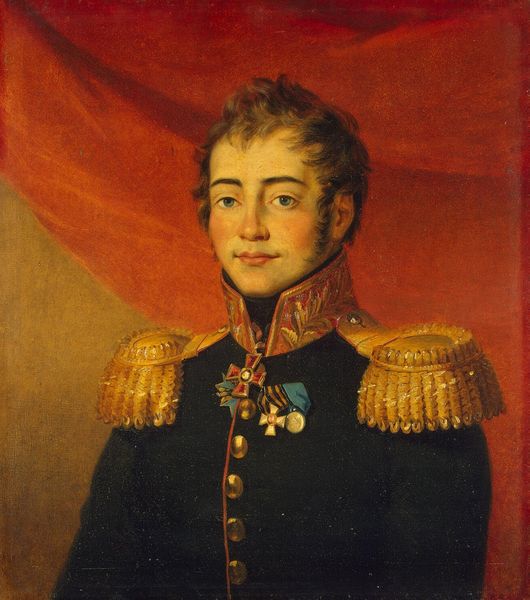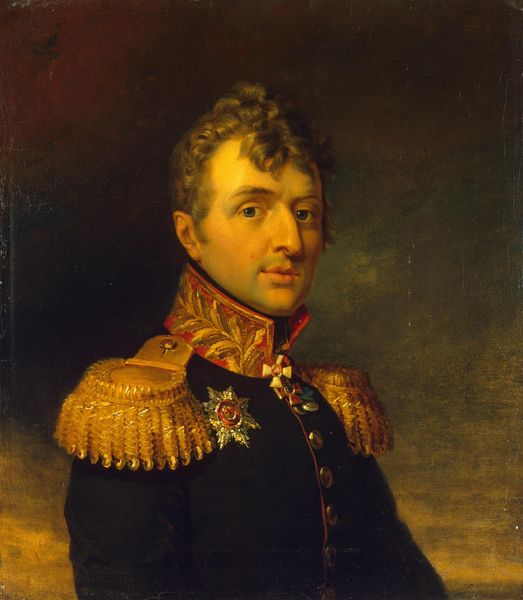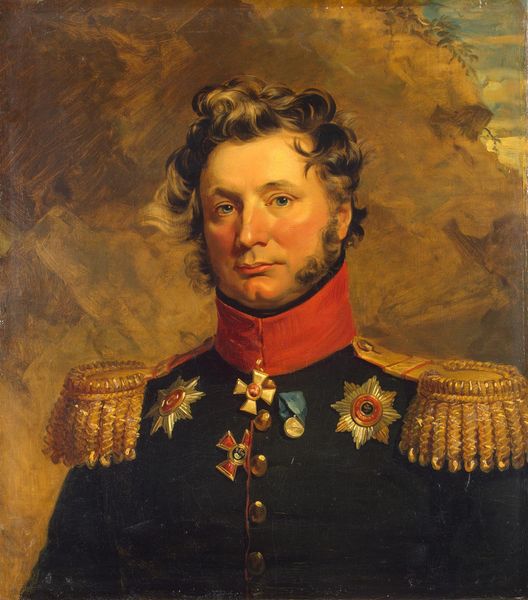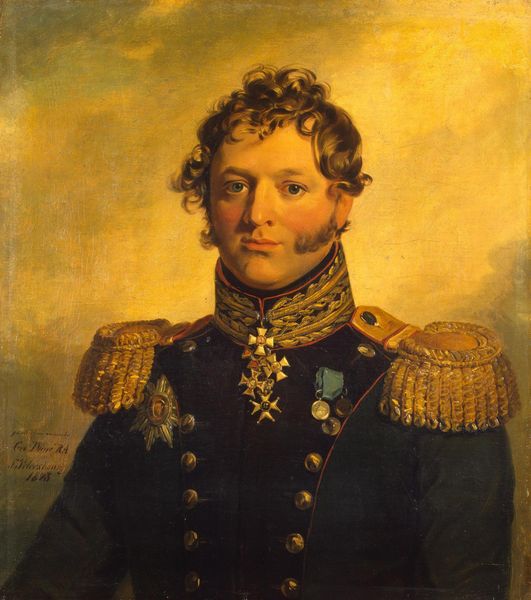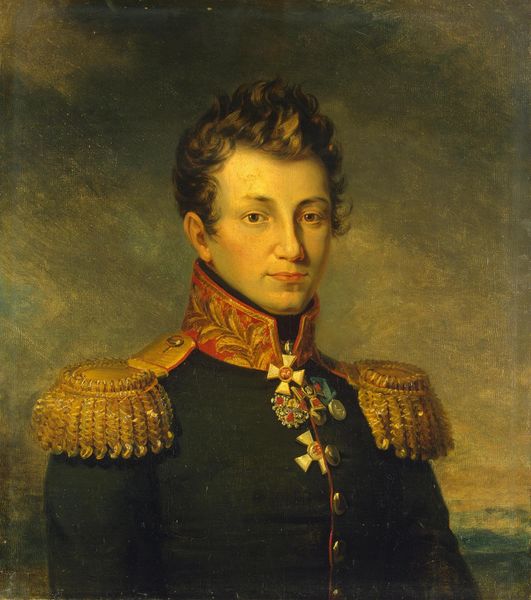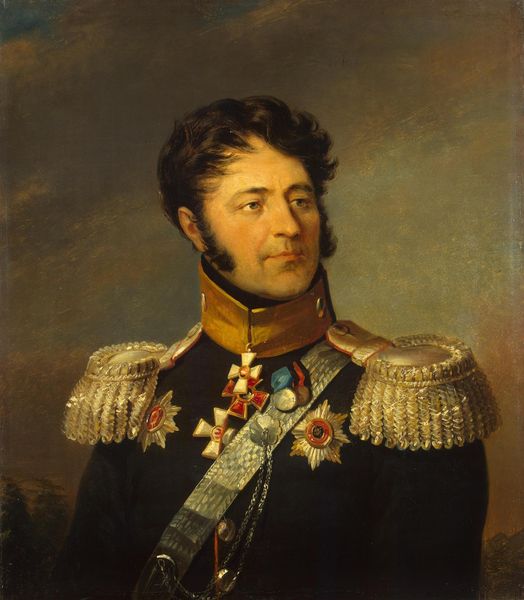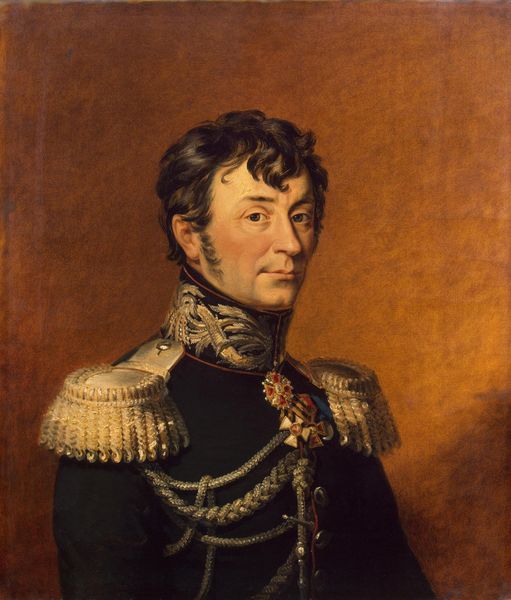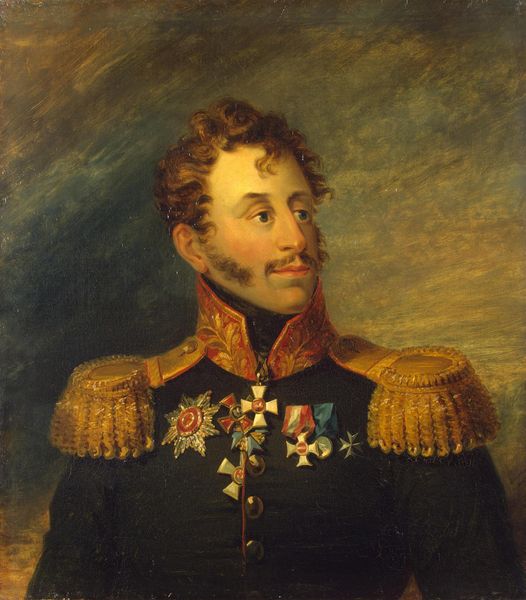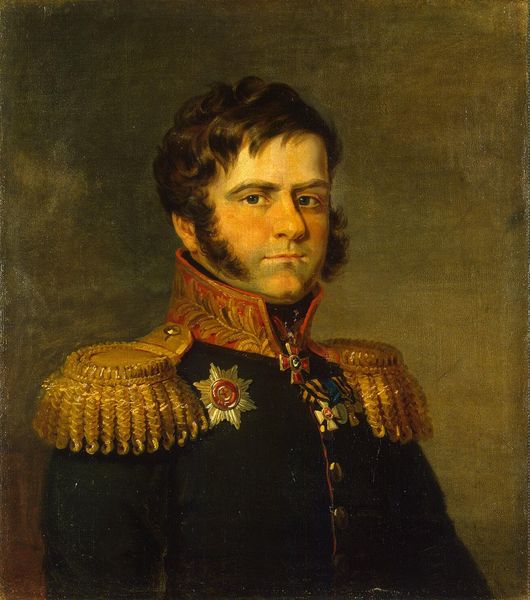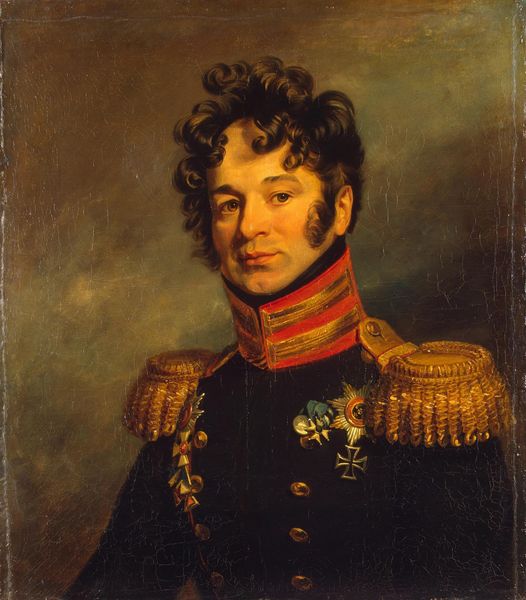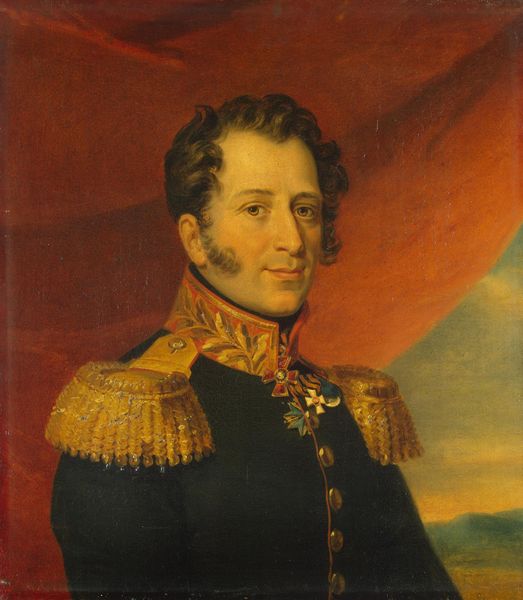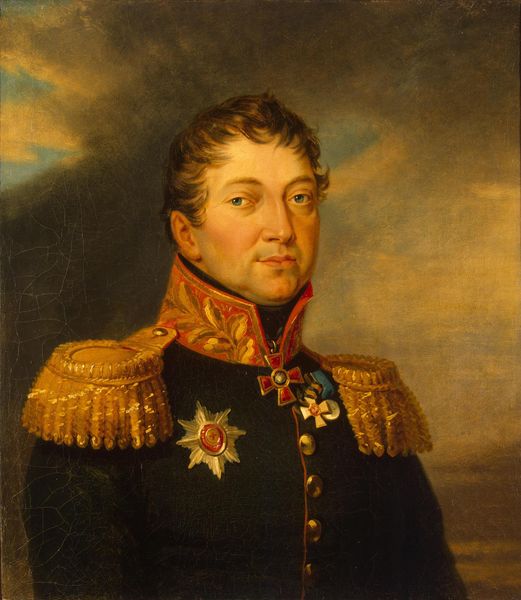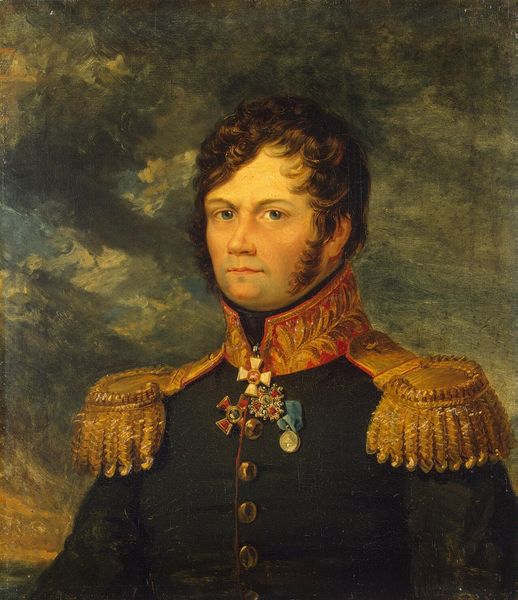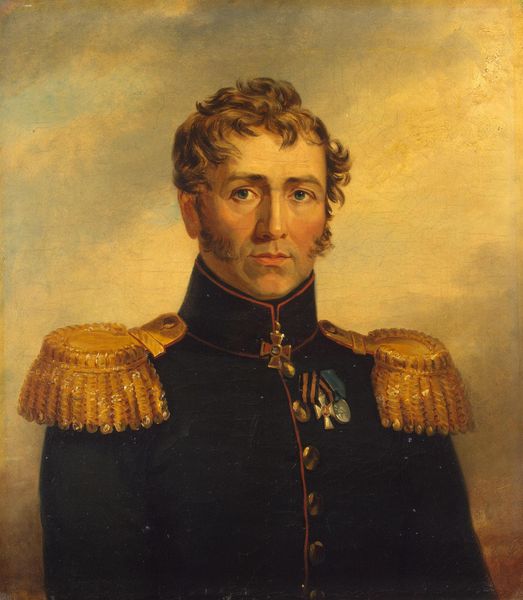
painting, oil-paint
#
portrait
#
painting
#
oil-paint
#
figuration
#
romanticism
#
history-painting
#
academic-art
Copyright: Public domain
George Dawe, an English artist, painted this portrait of Modest Matveevich Okulov, a Russian General, likely sometime in the 1820s. Painted during a time of significant social and political change in Russia, portraits such as this one served to reinforce the power and authority of the ruling class. Notice the general's uniform, laden with gold and medals. These visual cues communicate status and military achievement. Consider the cultural context of early 19th-century Russia, a society with a rigid social hierarchy and a powerful aristocracy. Dawe's portraits, displayed in prominent institutions like the Hermitage, played a role in shaping public perception and legitimizing the existing social order. By studying such paintings, alongside military records and social commentaries, we can better understand the complex interplay between art, power, and society.
Comments
No comments
Be the first to comment and join the conversation on the ultimate creative platform.
